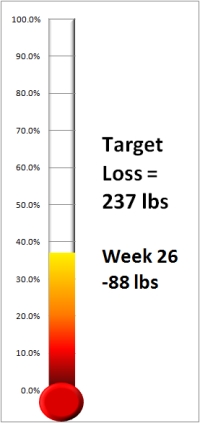Step 3: Track Yourself
In those first meetings, Jan and David also received what was to become their most powerful tool for losing weight—a daily diary, dubbed "the little green book." Their assignment was to carry it with them everywhere, to write down everything they ate and drank, then tally up the calories at the end of each day. And, whenever they made a conscious effort to exercise, they were instructed to write down what they did and for how long, estimating how many calories they'd burned. It all went into the little green books.
For David, a self-confessed "junk-food junkie," the results were a sobering shot of truth serum. "I was drinking almost 1,000 calories a day just in sodas." Although he had calculated that about 3,000 calories daily would keep his current weight steady, the diary revealed he was actually taking in about 3,900 calories—while getting virtually no regular exercise. In the weight-management world, that amounts to a perfect storm for gaining.
"For me, it was a kind of ignorance, really," admits Jan. "Not knowing what a portion size was, not thinking about how calories added up." She remembers, "I'd love to get a bagel and cream cheese in the morning. I had no idea it was over 400 calories."
With program director Gold's guidance, the group learned to measure out everything they ate until they were able to recognize sensible portions. "In this culture, people tend to eat two to three times a normal portion without blinking an eye," says Gold. "I think working hard to be as accurate as possible really worked in Jan and David's favor."
The simple act of writing down behavior, in fact, is a key component of successful weight control. "Having the evidence right in front of you makes you accountable for your behavior," explains Harvey-Berino, "and it can point you to what you need to change." Besides his soda revelations, David's journal documented that he often skipped breakfast, setting himself up for uncontrollable hunger later in the morning. "I'd come into the office and grab a doughnut and a soda," he recalls (a little wistfully). Now, after acting on suggestions from Gold, David starts most days with a bowl of whole-grain oat cereal. He has also switched to diet sodas—not exactly breaking the soda-drinking habit, but saving him nearly 1,000 calories a day. "Calories are calories without judgment," explains Gold, "so we encourage any change that decreases caloric intake."


1 comment:
A good idea. Sobering, I'm sure.
I've GOT to get back on the workout track, and the better eating track, or all those losses will turn back into gains.
I SO do not want that.
My weigh-in will come tomorrow. Hope that's OK.
Post a Comment